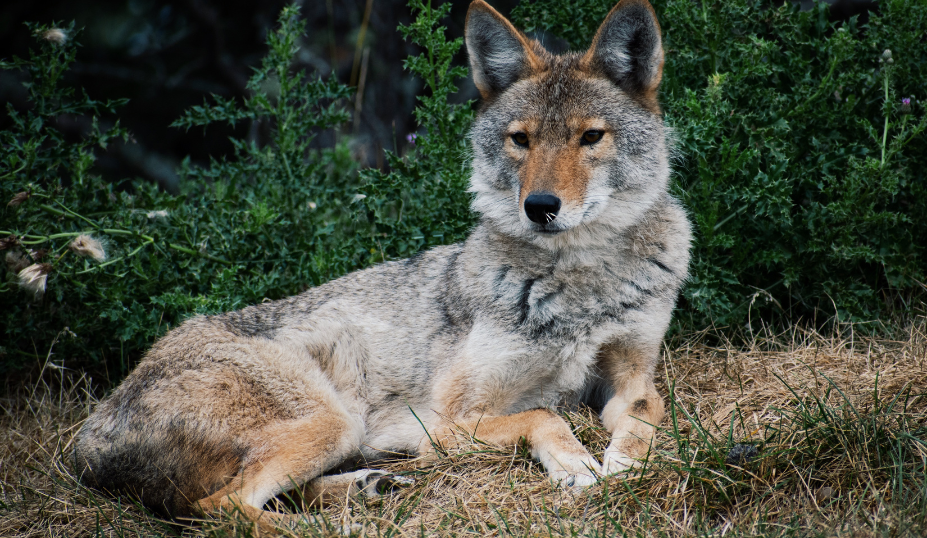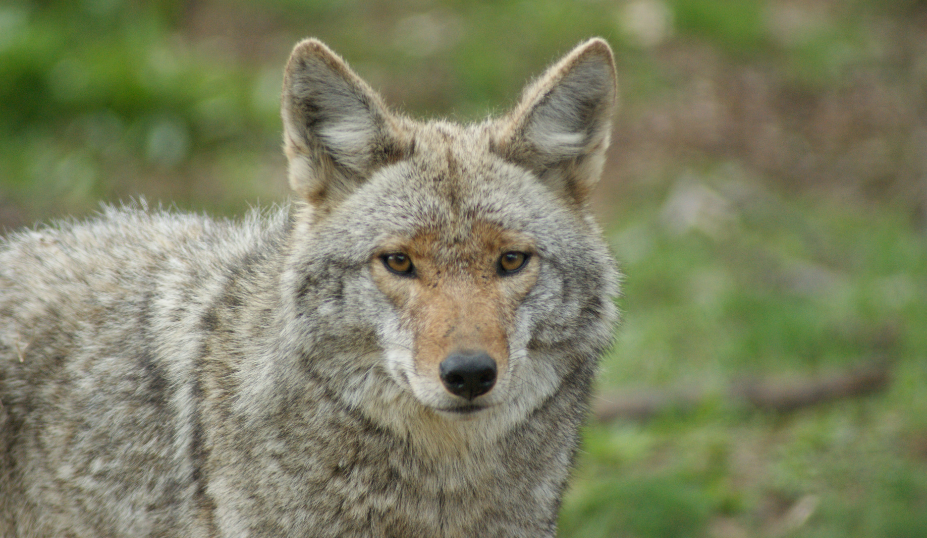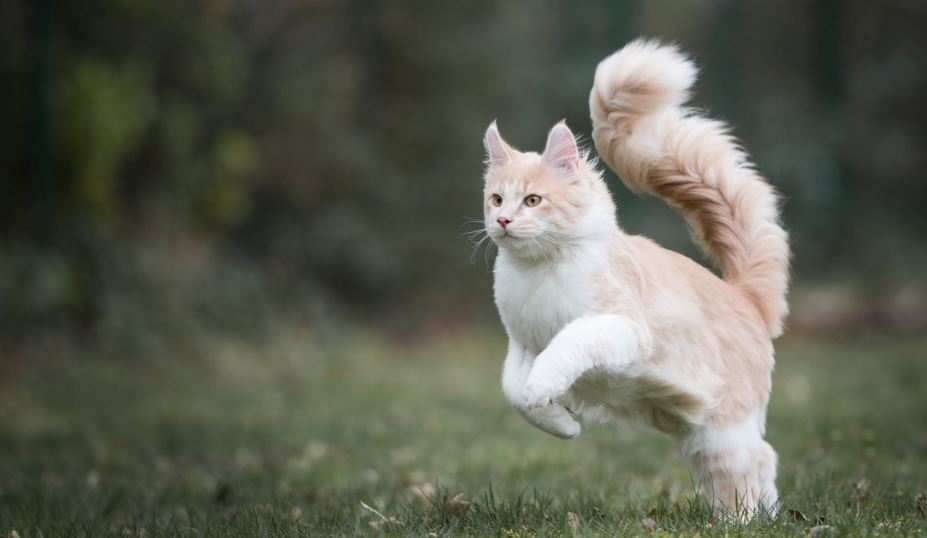Maine Coon vs Coyote: A Detailed Comparison and Survival Guide
Maine Coon vs Coyote: A Detailed Comparison and Survival Guide
As a proud Maine Coon owner, you know that your feline friend is no ordinary house cat. These gentle giants are known for their impressive size, rugged good looks, and unmatched toughness. But what happens when they come face to face with a coyote, one of North America's most cunning and adaptable predators?
In this ultimate showdown, we'll pit the Maine Coon against the coyote in a battle of wits, strength, and survival instincts. We'll explore the unique characteristics of each animal, from their physical traits to their behaviors, and uncover the secrets to keeping your beloved Maine Coon safe from harm.
First up, let's take a closer look at the Maine Coon. These majestic felines are the largest of the domestic cat breeds, with males weighing in at an impressive 15-25 pounds and females tipping the scales at 10-15 pounds1. But don't let their size fool you – Maine Coons are known for their agility, intelligence, and adaptability. They were originally bred as working cats, tasked with keeping barns and homes free of rodents, and their hunting instincts are still sharp to this day.
The coyote is a wild canine that has thrived in North America for thousands of years. These clever and opportunistic predators are known for their ability to adapt to a wide range of habitats, from forests and prairies to urban areas. Coyotes typically weigh between 20 and 50 pounds and are equipped with sharp teeth, powerful jaws, and keen senses that make them formidable hunters.
So, what happens when these two animals cross paths? Unfortunately, the odds are not in the Maine Coon's favor. While Maine Coons are certainly tough and resourceful, they are no match for a coyote's speed, strength, and hunting prowess. In fact, studies have shown that cats make up a significant portion of urban coyotes' diets – up to 20% in some areas.
But don't despair – there are steps you can take to protect your Maine Coon from becoming a coyote's next meal. The most effective way to keep your cat safe is to keep them indoors, especially at night when coyotes are most active. If your Maine Coon does venture outside, make sure they have a safe and secure enclosure to retreat to, such as a catio or a fenced-in yard.
Ultimately, the key to keeping your Maine Coon safe from coyotes is to be proactive and vigilant. By understanding the risks and taking the necessary precautions, you can ensure that your feline friend lives a long, healthy, and coyote-free life.
Whether you're a seasoned Maine Coon owner or a newcomer to the world of these majestic felines, remember – knowledge is power. By arming yourself with the facts about Maine Coons, coyotes, and the dynamics between them, you can be the ultimate protector of your furry friend. And who knows – you might just become the hero of your wild adventure tale, starring you and your fearless feline companion.
Understanding Maine Coons
Size and Appearance
Maine Coons are known for their solid and sturdy build, with males usually being bigger than females. They have muscular, long, rectangular bodies with broad chests. Their large, round paws have tufts of hair, adding to their unique appearance. The average weight of a Maine Coon ranges from 9 to 18 pounds, with males potentially weighing 20 pounds or more. In terms of length, they can measure between 19 to 30 inches.
Their coat is heavy and shaggy yet silky, falling smoothly over their body. It comes in several colors, including solid (white, black, blue, red, and cream), tabby, bi-color, parti-color, shaded, and smoke.
Personality and Behavior
Maine Coons are sociable and inquisitive, often found wherever the action is in the house. They express themselves through a variety of soft and melodious meows, chirps, and trills. They are quite trainable and enjoy learning tricks, responding well to positive training methods, and tasty food treats.
Despite the old stereotype, Maine Coons often love water and may play in it, bathe in it, dip their food in it, and even swim. They are also known for their intelligence and are easily trainable, often described as "dog-like" for their ability to be trained.
Hunting Instincts and Prey
Maine Coons are natural hunters with a high prey drive. Their lean, muscular bodies under their thick pelt are perfectly designed for catching quick prey. They are skillful in choosing which prey to hunt, as well as deciding when and how to sneak up on that prey.
Their potential prey includes a variety of wildlife, such as small rodents like mice, rats, shrews, moles, and voles. They are also known to hunt birds, fish, and occasionally rabbits or hares. Reptiles and amphibians are also on their menu if they are especially hungry.
Despite their hunting instincts, Maine Coons are gentle and sociable, making them suitable for both working and pet purposes. Their intelligence and hunting skills make them a popular breed among cat lovers worldwide.
Understanding Coyotes

Coyotes, members of the Canidae family, are medium-sized animals that share many traits with their relatives, including wolves, dogs, foxes, and jackals. They have narrow snouts, lean bodies, yellow eyes, bushy tails, and thick fur. Typically, they weigh between 30-50 pounds and measure 48-60 inches from nose to tail.
Coyotes are known for their adaptability and intelligence, which have helped them spread across North America and even adapt to living alongside people in cities.
They are gregarious animals that live in packs and hunt individually, in pairs, and in a family group, depending on the availability of prey. Most of their hunting activity takes place at night, but undisturbed and hungry coyotes will hunt during daylight hours.
Coyotes are opportunistic predators and scavengers. Their diet includes small animals like mice, rats, gophers, mountain beavers, rabbits, and squirrels, as well as snakes, lizards, frogs, fish, birds, and carrion (animal carcasses). They also consume grass, fruits, and berries during the summer and fall.
In urban and suburban areas, coyotes have been known to prey on domestic pets like cats and small dogs, and may also eat garbage, pet food, and fruit. Coyotes have a significant impact on domestic animals, particularly cats. Studies have shown that coyotes can and do prey on cats, especially in areas where their territories overlap.
In one study, it was observed that cats had a 53% chance of being killed during each interaction with a coyote. However, it's important to note that coyotes are not to blame for this scenario any more than cats are to blame for eating birds – they're just doing what comes naturally. Coyotes are also known for their vocalizations, which include a long howl to report their location, short barks to warn of danger, yips when reuniting with pack members, growls when establishing dominance, whines, and whimpers when bonding and high-pitched barks to summon pups.
Maine Coon vs Coyote: A Comparative Analysis
Physical Traits
Maine Coons are one of the largest domesticated breeds of cat, with males weighing from 13 to 18 lb and females weighing from 8 to 12 lb. They have a distinctive physical appearance with a solid and muscular body, broad chest, and a long, heavily furred tail. Their large, wide paws are great for walking on snow and can increase their chances of catching prey.
Coyotes are wild canines native to North America. They are smaller than gray wolves but larger than foxes, weighing 20 to 50 pounds. They have yellow eyes, pointed ears, and bushy tails. Their coats are usually gray or buff-colored.
Behaviors and Hunting Strategies
Maine Coons are known for their valuable hunting skills. Despite being domesticated, they have never lost their hunting instincts. They are quiet and sneaky and have mastered the art of hunting, making it easy for them to slink around undetected and attack prey. They are natural predators, but they are also among the most loving and social cats.
Coyotes are wild animals used to hunting in packs to take down larger prey such as moose, elk, and deer. They are strong swimmers and speedy runners, making them formidable predators.
Potential Outcomes of a Confrontation
While Maine Coons are certainly no pushovers, with their impressive size and fierce hunting instincts, they're simply no match for the cunning and power of a coyote. Coyotes, with their larger size and pack-hunting mentality, have a distinct advantage over even the toughest of cats. These wild canines are built for the hunt, with sharp teeth, powerful jaws, and the endurance to chase down their prey. In a one-on-one confrontation, a Maine Coon might be able to get in a few good swipes, but it's unlikely to come out on top.
But let's not forget the element of surprise. If a Maine Coon were to catch a coyote off guard, it could potentially inflict some serious damage. These cats are known for their lightning-fast reflexes and razor-sharp claws, and they're not afraid to use them when threatened.
Even with the advantage of surprise, it's highly unlikely that a Maine Coon could take down a coyote single-handedly. Coyotes are simply too large and too well-adapted to the hunt to be bested by a house cat, no matter how fierce.
The best way to protect your Maine Coon from a coyote confrontation is to keep them indoors, especially in areas where coyotes are known to roam. While it might be tempting to let your cat explore the great outdoors, the risk of a deadly encounter with a coyote is simply too high.
Real-life Encounters Between Maine Coons and Coyotes

Maine Coons, one of the largest domestic cat breeds, are known for their resilience and toughness. They are intelligent hunters with a high prey drive and excellent problem-solving skills, often hunting mice, rats, fish, birds, rabbits, reptiles, amphibians, and insects.
Despite their size and hunting prowess, Maine Coons are not immune to threats from larger predators, especially when they are outdoors. One of the most significant threats to outdoor Maine Coons is the coyote. Coyotes are common predators in many areas of North America and have been known to target domestic cats as prey.
There are several anecdotal accounts of encounters between Maine Coons and coyotes. For instance, in Mississippi, a woman's Maine Coon was attacked by a coyote in her backyard. The coyote had the cat's head in its mouth, but the cat managed to escape when the owner intervened.
In another instance, a Maine Coon owner lost her cat to a coyote attack in the city, highlighting that coyotes have moved into urban areas and pose a threat to outdoor cats. While Maine Coons are capable of defending themselves, it is unlikely that they would be able to kill a coyote outright due to the size and power of the coyote.
A Maine Coon could potentially injure a coyote if it were able to surprise the predator and get in a few good bites or scratches. Despite these risks, many Maine Coon owners still allow their cats to go outdoors, often because the cats enjoy the stimulation and exercise. Owners need to take precautions to protect their cats.
This can include supervising them when they are outside, keeping them indoors at night when coyotes are most active, and installing a fence or other barrier around the property.
Safety Measures for Maine Coons

As a Maine Coon owner, it's crucial to take appropriate measures to protect your pet from potential coyote encounters. Here are some tips and advice to help ensure your cat's safety:
- Keep your Maine Coon indoors: One of the most effective ways to protect your cat from coyotes is to keep them indoors, especially at night when coyotes are most active.
- This also helps prevent exposure to other dangers, such as traffic, diseases, and parasites.
- Supervise outdoor time: If you choose to let your Maine Coon outside, always supervise them and consider using a leash or harness to keep them close to you.
- Install a fence or barrier: A six-foot fence with the bottom extending two feet underground can help deter coyotes from entering your property.
- This can provide an additional layer of protection for your cat when they are outside.
- Remove attractants: Ensure that there are no food sources, such as pet food, garbage, or bird feeders, that may attract coyotes to your property.
- This can help reduce the likelihood of a coyote coming near your home and encountering your cat.
- Provide a safe outdoor space: If you want to give your Maine Coon some outdoor time, consider creating a secure outdoor enclosure or "catio" where they can safely explore without the risk of encountering a coyote.
- Be vigilant: Stay informed about coyote sightings in your area, and take extra precautions if you know that coyotes are nearby.
By understanding the importance of keeping Maine Coons indoors and taking the necessary precautions to protect them from potential coyote encounters, you can help ensure the safety and well-being of your beloved pet.
Frequently Asked Questions
Are Maine Coons bigger than coyotes?
No, coyotes are generally larger than Maine Coons. While Maine Coons are one of the largest domestic cat breeds, with males potentially weighing 20 pounds or more, coyotes typically weigh between 30-50 pounds.
Can a Maine Coon defend itself against a coyote?
While Maine Coons are tough and resilient, a confrontation with a coyote would likely be unfavorable for the cat. Coyotes are larger, stronger, and more experienced predators.
What can I do to protect my Maine Coon from coyotes?
Some effective measures include keeping your Maine Coon indoors, especially at night, supervising them when outside, installing fences or other barriers around your property, and removing food sources that may attract coyotes.
Conclusion
While Maine Coons may be the gentle giants of the domestic cat world, with their impressive size and fierce hunting instincts, they're no match for the cunning and power of a coyote.
Coyotes, those opportunistic hunters of North America, are always on the lookout for their next meal – and unfortunately, that meal might just be your beloved Maine Coon. With their larger size and hunting experience, coyotes have a distinct advantage over even the toughest of cats.
There are steps you can take to protect your Maine Coon from becoming a coyote's next victim. The key is to be proactive and vigilant, creating a haven for your feline friend. First and foremost, keep your Maine Coon indoors, especially at night when coyotes are most active. While it might be tempting to let your cat roam free, the risk of a deadly encounter with a coyote is simply too high.
If your Maine Coon does venture outside, make sure they're always supervised and have a safe place to retreat to if danger strikes. Installing fences or other barriers around your property can also help keep coyotes at bay. It's also about understanding the differences between these two animals. Maine Coons may be fierce hunters in their own right, but they're no match for the speed, strength, and pack mentality of a coyote.
By educating ourselves about the potential threats and taking the necessary precautions, we can create a safe and happy environment for our beloved Maine Coons. It's our responsibility as pet owners to do everything in our power to keep our furry friends out of harm's way.



.jpg)



